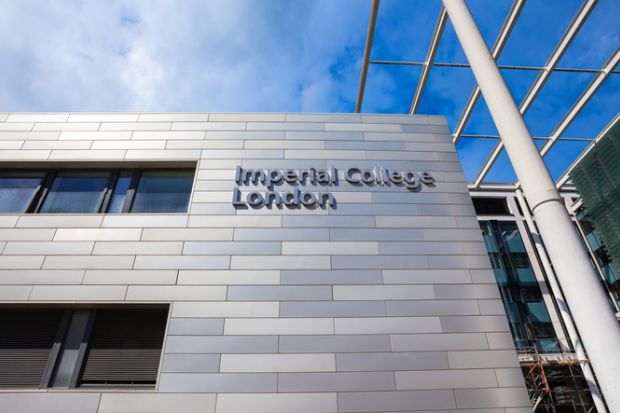Imperial College London has told staff it expects to make 75 staff in the ICT department redundant, with coronavirus researchers warning the move could harm their work.
In a “white paper for staff consultation”, the university set out how changes to “the ways of working, management structure, roles and staffing” will save the university around £2.7 million following an eight-month restructure.
The plans will affect 156 members of the 281 staff in the ICT department, as they will be asked to apply or compete for roles “either internally and in some instances against applicants both internally and externally”.
The university said it expects 75 staff will be then made redundant, although “will work to keep this number to a minimum”, following the consultation period.
According to the document, the college can “only operate effectively when relevant underlying ICT technology, people and process capabilities are in place, planned and delivered in collaboration with the wider college, in an optimal manner”. It said that current “inefficient structures and processes result in suboptimal services being delivered to the College”.
There will be an opportunity to be considered for voluntary redundancy until 31 July 2020, after which there will be a compulsory redundancy process.
One academic told Times Higher Education they were “horrified” by the plans: “This has been rushed through to the point of being reckless. It is an important department – especially now – and this will directly affect Covid-19 research.”
Members of the Imperial College Covid-19 Response Team, which has been advising government on how to respond to the pandemic and working on modelling of the spread of coronavirus, also condemned the plans.
Team member Samir Bhatt, a senior lecturer in the faculty of medicine, said that for weeks “all of our Covid-19 response work has had to be done remotely. It goes without saying that our work is of significant public health importance, both within the UK and around the world, and it would have been impossible without the Imperial ICT staff and their heroic efforts in the midst of incredibly trying circumstances.”
Another member of the team, Seth Flaxman, a senior lecturer in statistical machine learning, said that “my team has published a major paper in Nature quantifying lives saved by lockdown, for which we relied heavily on specialised computing services supported by Imperial's ICT staff.”
UCU general secretary Jo Grady said it was “incredible” that Imperial would “risk undermining the fight against Covid-19” through the redundancies. “We want to work with Imperial and make the case for government to provide the funding the sector needs, but we will fight to keep every member of staff,” she said.
An Imperial spokeswoman said: “We are reforming our Information Technology Services to provide the best support for our world-class research and education. Our Covid-19 Response Team will continue to receive first-rate ICT support. We are simplifying some processes and adopting a structure that makes it easier for us to respond quickly to the changing needs of our researchers and students.
“This project predates the pandemic, but the urgent need to support remote working, teaching and learning made these changes even more important. We are consulting with and supporting our staff who are affected by these changes.”
Register to continue
Why register?
- Registration is free and only takes a moment
- Once registered, you can read 3 articles a month
- Sign up for our newsletter
Subscribe
Or subscribe for unlimited access to:
- Unlimited access to news, views, insights & reviews
- Digital editions
- Digital access to THE’s university and college rankings analysis
Already registered or a current subscriber?




